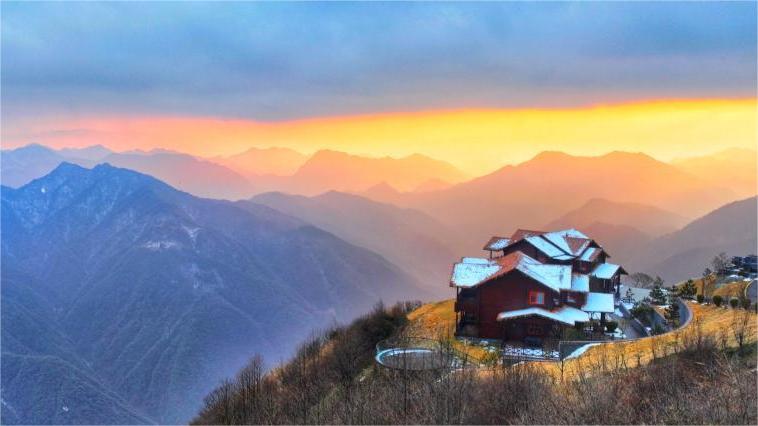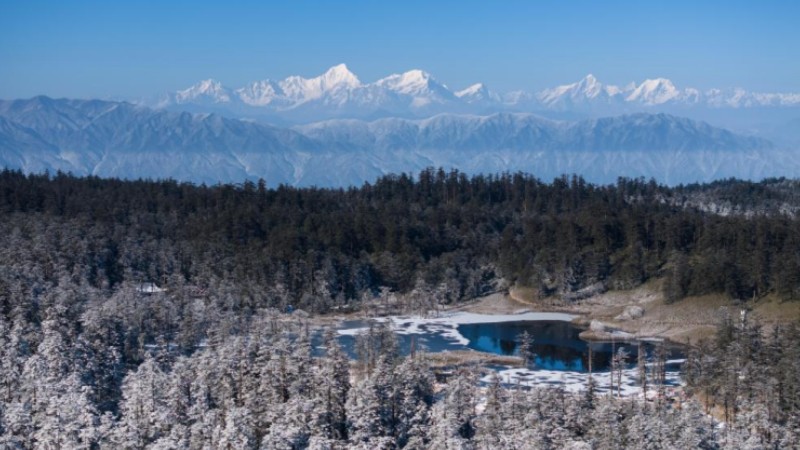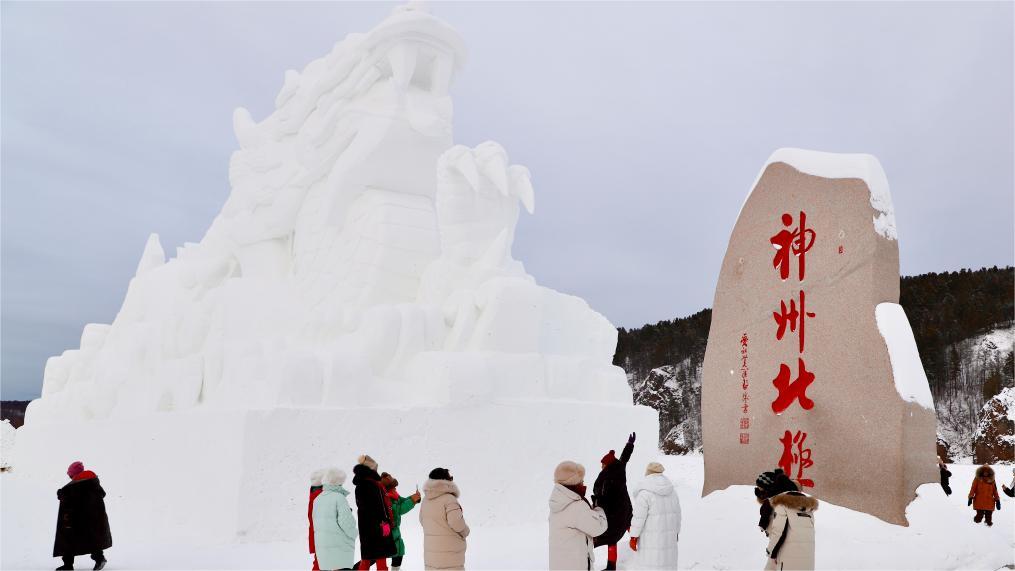China taps into booming potential of senior tourism market
Seniors are an increasingly active group in China's tourism industry, taking tourist trains to the mountains to escape the summer heat and seeking warmth and sunshine in the south during winter.
By the end of 2025, the China Tourism Academy (CTA) predicts there will be over 100 million active older travelers in China. As a result, the silver tourism market is expected to hit 1 trillion yuan ($140 billion) by then.
From Jan. 1 to Oct. 15 this year, trips by Chinese people aged 55 and above almost doubled year on year, according to Trip.com, China’s major online travel agency. The report highlights that those aged between 55 and 60 are the primary consumer group, accounting for 60 percent of total trips.

Senior tourists pose for pictures in the Nanshan Cultural Tourism Zone, Sanya, south China's Hainan province. (People's Daily Online/Chen Wenwu)
Middle-aged and older people account for a large share of Chinese travelers opting for off-peak travel during autumn and winter.
A recent CTA report indicates that with China's aging population, improved health, more leisure time, evolving consumer behavior, and stronger spending power among seniors, silver tourism is increasingly seen as a key market and important growth engine for the tourism sector.
Long-term travel is increasingly becoming a lifestyle choice for seniors. Like migratory birds, they travel to different places for one or several months or at certain times of the year, seeking new, comfortable, and healthy experiences.
For example, Zhou, along with her family members, is currently vacationing in Beihai city, located in south China's Guangxi Zhuang Autonomous Region.
"The climate here is warm and pleasant, while fruits and seafood are very affordable. It's very comfortable to enjoy the scenery of the Silver Beach National Tourist Resort," she shared.
Zhou, who recently retired, invested in an apartment in Beihai. Now, she and her family spend time in the city each autumn and winter. "The period from November to January is the best time to travel in Beihai," she said.
"Senior tourists have more flexible travel times. The proportion of one-day trips and long-term tours made by them is higher," said Huang Huang, an associate research fellow with the CTA.
Zhang Jinshan, a researcher at the Tourism College of Beijing Union University, stated that the recent integration of medical and elderly care will likely stimulate more seniors to embrace wellness-oriented seasonal tourism. This integration is also expected to promote the development of high-quality wellness-oriented seasonal tourism services in regions suitable for such offerings.
Nowadays, senior tourists tend to prefer more fashionable and diverse travel options. Many are keen to immerse themselves in the life of their destinations, learning about local history and culture. Meanwhile, a growing number of older adults are eager to participate in activities like hiking, biking, camping, mountaineering, and other sports at their travel destinations.
Regions across China are continuously upgrading their facilities to make them more senior-friendly and improving the travel experience to meet the burgeoning demand of senior tourists.
For instance, Mangshan Mountain in central China's Hunan Province has been transformed into a barrier-free scenic area. Tourists can access the mountaintop without barriers through cable cars, barrier-free walkways, elevators, escalators, and vertical lifts. In Longqing district of southwest China's Chongqing Municipality, barrier-free passages, elevators, and escalators at tourist attractions have been renovated, and grab bars have been installed in 1,000 toilets.
Places across China are making strides in bridging the digital divide in the senior tourism market. Shanghai has launched a local tourism WeChat mini program tailored to older people. Meanwhile, East China's Jiangsu Province has introduced a digital tourism card and a comprehensive digital culture and tourism service platform. These enable senior residents to enjoy services such as medical treatment settlements, transportation, tourism, and cultural experiences.
Huang emphasized the need to bridge the digital gap, build an "intelligent system," and enhance the renovation of smart tourism terminals, apps, and mobile internet for the convenience of senior citizens.
Additionally, there is a push to accelerate the in-depth application of information technology and intelligent hardware in the senior tourism market. This includes exploring the trial use of senior-friendly products like rehabilitation aids, health monitoring devices, service robots, and daily assistive devices in multiple scenarios, including culture, tourism, leisure, and hotels.
Li Xinjian, executive dean of the Capital Culture and Tourism Development Institute at Beijing International Studies University, suggested improvements to basic public service facilities, emphasizing the importance of ensuring safe travel and high-quality services for senior travelers. Additionally, Li highlighted the significance of building a senior-friendly digital society to lower barriers to accessing information services.
Li also advised strengthening market supervision to guard against fraudulent practices in the tourism market that infringe on seniors' lawful rights and interests.
Photos
Related Stories
- Surge in outbound tourism as Chinese travelers embrace first post-pandemic New Year holidays
- Innovation boosts revival of China's cultural, tourist industry
- Cambodia receives nearly half million Chinese tourists in 11 months
- China's Mohe develops various winter tourism programs
- Meteorological tourism an emerging market in China: report
- China's cultural, tourism sectors see robust recovery, expect higher-quality development
- China's domestic tourism revenue up 114 pct year-on-year in first three quarters
Copyright © 2023 People's Daily Online. All Rights Reserved.









